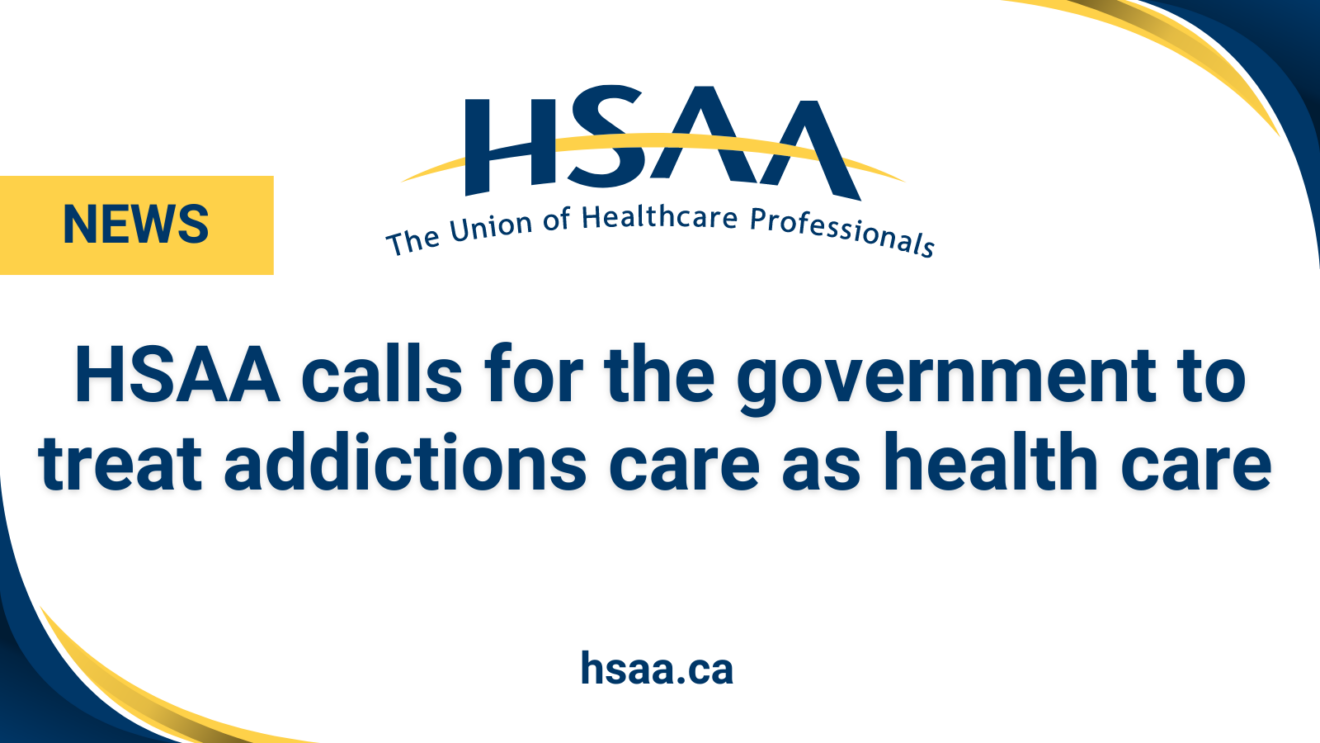HSAA is calling on the provincial government to release up-to-date data on deaths caused by overdoses and broaden its one-size-fits-all Alberta Model to treat addiction care like health care.
The government has been touting the success of the Alberta model without releasing the most recent data on deaths caused by drug overdoses and poisonings.
“On Tuesday, the Premier said, ‘we’re seeing addiction-related deaths at all-time lows.’ This statement goes against everything our Addictions Counsellors, Mental Health Therapists, Social Workers, Psychologists, and Paramedics are seeing on the frontlines of a toxic drug crisis.” said Mike Parker, President of the Health Sciences Association of Alberta. “If the Premier and the Minister are going to speak about the success of their Alberta Model, they need to back it up with facts and release up to date data on overdose deaths and the results of their recovery only approach.”
The government has not released updated data on overdose and drug poisoning deaths since November 2023 or any data to prove the success of their abstinence-only approach. Based on the information available, last year the drug overdose and poisoning crisis in Alberta hit a critical point, having the most significant impact on the province ever.
- Over 1706 people died just from opioid overdoses and poisonings from January to November
- From March 2023 to at least October 2023, there was a monthly average of one EMS call for an overdose every hour
- Every quarter last year saw the highest ever rate of Emergency Department visits for opioids.
“The scale of the toxic drug supply crisis is killing the size of a small town every year and pushing our health-care professionals to their limits,” said Parker. “Our members face this crisis on all fronts, at their jobs and at home. It is putting unbearable pressure on them, and we are saying that something must change so we are preventing overdoses and not just responding to them.”
According to the government’s data, overdose deaths continue to increase while efforts needed to prevent overdoses don’t match the increased need.
“Addiction care is health care, and we need to be doing everything we can to prevent overdose deaths. Abstinence alone is not the right strategy for the scale of this crisis. We can’t help people get better if they’re not alive.” continued Parker. “Our members are addictions and mental health professionals, and they know that evidence-based care must come first, and recovery isn’t one-size fits-all.”
“We are asking this government to broaden its scope for addiction care to include the whole spectrum of treatment options and end the patchwork and gaps of harm reduction services across the province. A full spectrum of harm reduction services and therapeutic approaches needs to be applied across the province through a publicly funded and delivered healthcare system and by trained healthcare professionals”
-30-
Media Inquiries:
Myles Curry, Director Communications and Engagement
587-991-9445 | MylesC@hsaa.ca
